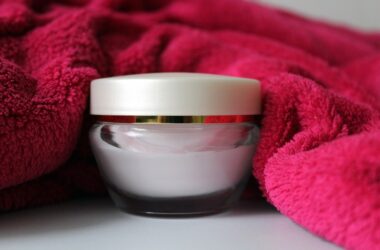Table of Contents
What is Hydroquinone?
Hydroquinone, also known as benzene-1,4-diol, is a commonly used skin-lightening agent used to treat various skin conditions such as hyperpigmentation, melasma, freckles, and age spots. It is a popular active ingredient in many skin care products, including creams, gels, and serums.
Hydroquinone works by inhibiting the production of melanin, the pigment responsible for skin color. By reducing melanin production, hydroquinone can help to lighten dark spots, even out skin tone, and reduce the appearance of hyperpigmentation. This makes it a go-to ingredient for many people looking to achieve a more even and radiant complexion.
How Does Hydroquinone Work?
Hydroquinone works by inhibiting the activity of the enzyme tyrosinase, which is responsible for converting the amino acid tyrosine into melanin. By blocking this enzyme, hydroquinone reduces the amount of melanin produced, leading to a decrease in skin pigmentation. This process can take several weeks to several months, depending on the concentration and consistency of the treatment.
Benefits of Hydroquinone
The benefits of hydroquinone are numerous and include:
* Effective in reducing hyperpigmentation and dark spots
* Can help to even out skin tone and reduce the appearance of freckles and age spots
* Can be used to treat various skin conditions, including melasma, melasma, and solar lentigines
* Available in a range of concentrations, from 2% to 4%
* Can be used in combination with other skin care products to enhance results
Risks and Side Effects of Hydroquinone
While hydroquinone is generally considered safe, it is not without its risks. Some of the potential side effects and risks associated with hydroquinone include:
* Bleaching of the skin, especially on the face
* Increased sensitivity to the sun
* Allergic reactions, such as redness, itching, and burning
* Skin irritation, such as rashes and dryness
* Potential for skin irritation and darkening around the mouth, eyes, and other sensitive areas
* In rare cases, accumulated in the body and cause toxicity
It is essential to follow the instructions carefully and use hydroquinone under the guidance of a healthcare professional, especially for sensitive skin or skin conditions. It is also important to patch test any new skin care product, including those containing hydroquinone, to ensure that you do not experience any adverse reactions.
Recommended Products
-
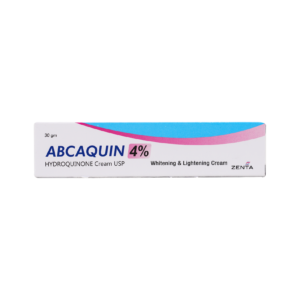 ABCAQUIN 4% Hydroquinone Whitening & lightening Cream 30gKD4.000
ABCAQUIN 4% Hydroquinone Whitening & lightening Cream 30gKD4.000 -
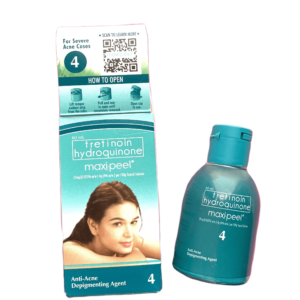 0.025% Tretinoin 4% Hydroquinone Maxi-Peel Solution No.4 60mLKD2.000
0.025% Tretinoin 4% Hydroquinone Maxi-Peel Solution No.4 60mLKD2.000 -
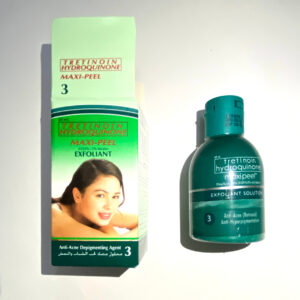 Maxi-Peel Exfoliant No.3 – 0.025%/2% Tretinoin, HydroquinoneKD2.000
Maxi-Peel Exfoliant No.3 – 0.025%/2% Tretinoin, HydroquinoneKD2.000 -
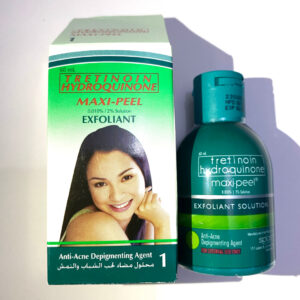 Maxi-Peel Exfoliant No.1 – 0.010%/2% Tretinoin, HydroquinoneKD2.000
Maxi-Peel Exfoliant No.1 – 0.010%/2% Tretinoin, HydroquinoneKD2.000 -
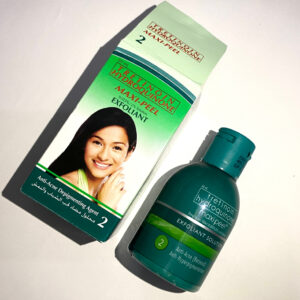 Maxi-Peel Exfoliant No.2 – 0.025%/2% Tretinoin, HydroquinoneKD2.000
Maxi-Peel Exfoliant No.2 – 0.025%/2% Tretinoin, HydroquinoneKD2.000 -
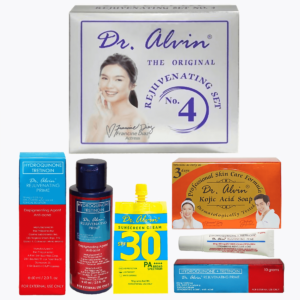 Dr. Alvin Rejuvenating Set No.4 (Prime) – Hydroquinone + TretinoinKD7.000
Dr. Alvin Rejuvenating Set No.4 (Prime) – Hydroquinone + TretinoinKD7.000 -
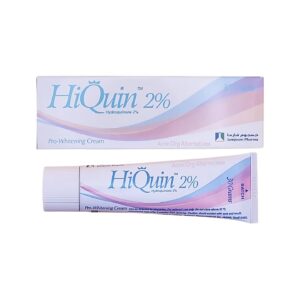 HiQuin Cream 30g – 2% Hydroquinone Solution for HyperpigmentationKD2.750
HiQuin Cream 30g – 2% Hydroquinone Solution for HyperpigmentationKD2.750 -
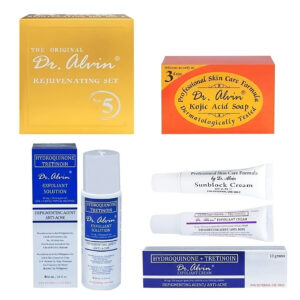 Dr. Alvin Rejuvenating Set No. 5 (Advance) – Hydroquinone + TretinoinKD7.000
Dr. Alvin Rejuvenating Set No. 5 (Advance) – Hydroquinone + TretinoinKD7.000 -
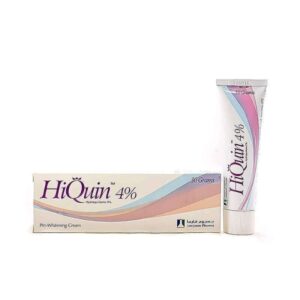 4% Hydroquinone HiQuin Cream 30gKD4.000
4% Hydroquinone HiQuin Cream 30gKD4.000



